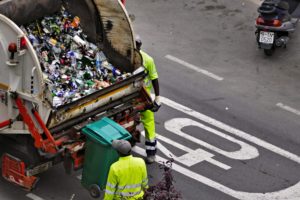Virgin plastic use has peaked
The consumption of virgin plastic by 500 global brands and retailers has reduced for the second year in a row, according to new data published by the Ellen MacArthur Foundation and the United Nations Environment Programme (UNEP).
Three years after launching the New Plastics Economy Global Commitment, which has more than 500 signatures, virgin plastic use has peaked and now is on a downward trend.
The data suggests that this trajectory will be accelerated by new commitments that are set to see virgin plastic use fall by almost 20% in absolute terms by 2025 compared to 2018.
When combined with the impact of existing commitments, it is estimated that raising ambitions to this level will avoid 8 million tonnes of virgin plastic from being produced each year by 2025. That is equivalent to keeping 40 million barrels of oil in the ground.
However, while this virgin plastic reduction is a welcome trend, the authors warn that this data does not address the total amount of plastic packaging on the market.

There is currently very little evidence of ambitious efforts to reduce the need for single-use packaging in the first place. Less than 2% of signatories’ plastic packaging is reusable, and for more than half of all signatories, this is 0%.
Dame Ellen MacArthur, founder & chair of trustees of The Ellen MacArthur Foundation, said: ‘We won’t recycle our way out of plastic pollution, eliminating single-use packaging is a vital part of the solution.
‘Alarmingly, our report shows little investment in this. We need a much more urgent focus on upstream innovation to rethink how to deliver products without packaging or by using reusable packaging. This doesn’t just allow us to design out waste, it also means we can design out carbon emissions whilst creating new opportunities for business. Shifting just 20% of plastic packaging from single-use to reuse is an opportunity estimated to be worth USD 10 billion.’
Inger Andersen, UNEP’s executive director added: ‘The Global Commitment is showing us that concerted voluntary action by actors across the value chain, including governments, can begin to shift the needle in the fight against plastic pollution.
‘The efforts from all signatories in reporting their progress transparently and with agreed metrics is truly commendable, and a great example to learn from. The frontrunners are also demonstrating that we can decouple the benefits we derive from plastic from the consumption of virgin plastic, and this is groundbreaking. But the action from these frontrunners can be boosted by a comprehensive, inclusive and global approach.’
In related news, in Episode 6 of the Environment Journal Podcast, Steve Cirell spoke to Carmen Valache, Project and Communications Manager for Climate Change at the Ellen MacArthur Foundation.












